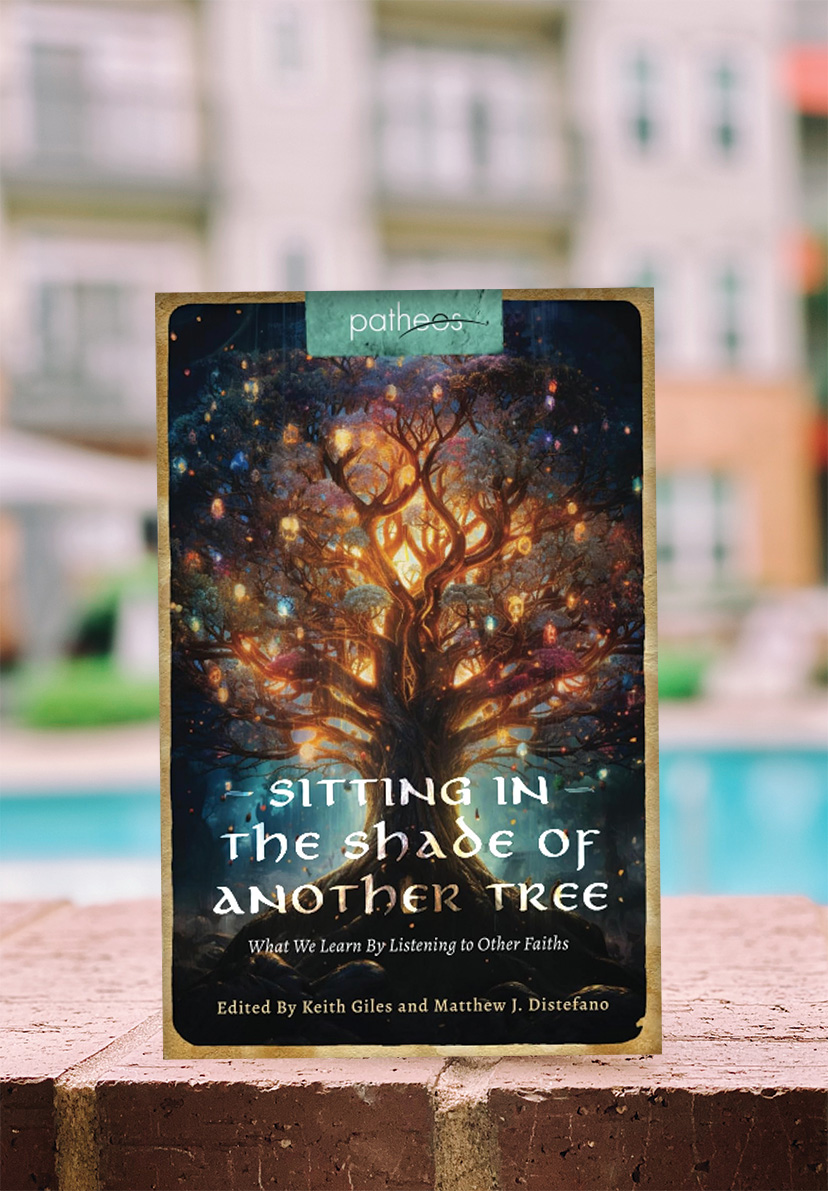
Editor’s Note: This is a contribution from Heather Hamilton, author of the book Returning to Eden, which was published in 2023 by Quoir Publishing.
I am honored to be a contributor to the new Patheos + Quoir bestselling book, Sitting in the Shade of Another Tree. In my chapter, “Christ and the Kundalini”, I discuss how learning a new language (Hinduism) helped me to better understand my own “mother tongue” (Christianity).
I’ll start with a little context beginning with a verse from Amos 9:7. In the verse below, God is speaking to the people of Israel:
“The LORD says, “People of Israel, I think as much of the people of Ethiopia as I do of you. I brought the Philistines from Crete and the Syrians from Kir, just as I brought you from Egypt.”
Coming from an Evangelical background, I was always taught that Israel was God’s chosen people and that God was only moving through the lineage of Israel to finally reveal Jesus and birth Christianity. The strong, if not explicit, implication here was that God was not present or being revealed to people outside of Israel. Israel—and by extension, Christians—were God’s chosen, special children…and no one else…unless, of course, one converted to Christianity.
But in Amos 9:7, the voice of God contradicts this narrative. Yes, God delivered the Israelites from Egypt. But God also delivered the Philistines and the Syrians and the Ethiopians. And the Philistines were the enemy of Israel! God’s sitting here saying, “Yeah Israel, I delivered you. But I also delivered your enemies. I think as much of them as I do you.”
I was fortunate to have a very loving grandmother. In my eyes, she was the best. And in her eyes, I was the best (along with my sister and cousins). But, when I was with her, I felt chosen and like there was no one more special to her. And that was true.
Perhaps you’ve had a person in your life you felt that way about. Maybe you didn’t, but I bet you can imagine that kind of relationship. Maybe you’ve felt that with God.
It would be absurd for me to insist that my relationship with my grandmother was superior to others’ relationships with their beloved. The special, chosen love that I felt from her has been felt by billions of people. My grandmother was the vehicle for that love. The image I associate with that unconditional love is my grandmother. And also…I acknowledge that a different image comes to mind for you. Looking at my grandmother would not generate the same feelings for you as it does for me. Yet, we know the same love!
What’s become apparent for me, and supported through this verse in Amos, is that God (Love) comes to people in many different forms and images. And those images get expressed in different ways. I think of religion in this way now: as a “language”—a system of communicating the Divine. Love is going to look, sound, smell, feel, even taste different coming through my grandmother (I can still taste her grits and her marinated chilled tomatoes!) than it will through your grandmother. God is going to look, sound, smell, feel, and taste different coming through different religions. Of course, Love coming through my grandmother and God coming through Christianity feels most visceral to me. I speak that language. It is my mother tongue. But I understand that other people experience Love through other grandmas and God through other religions. What’s primarily important is not the language, but what is coming through it. And that’s why God can accurately say, “Israel, you are chosen and delivered. And so is everyone else.” Both statements are paradoxically true and do not diminish one another.
With that said, in Sitting in the Shade of Another Tree, I write about how Christianity is my mother tongue, but how I came to understand Hinduism and Buddhism expressing what I found to be true about Love and God in different “languages”. In fact, I had to learn some of those new languages before I could more deeply understand my own.
I won’t give away the whole chapter. I encourage you to get the book and read it. It was quite a vulnerable piece for me to detail, but I’ll leave you with the end of the chapter:
“As much as I once wanted to believe that Christians were God’s chosen people, Amos 9:7 reminds me of what I’ve discovered to be true: God is speaking to and revealed through both Israel and Ethiopia, Philistines and Syrians, Christians and Hindus, all people and all creation. The idea that I am no more “chosen” than anyone else has turned out to be a life-giving relief for me. I can be at home with all people—religious or otherwise. In naming the mechanics of the Christ Mystery through the chakra system and Kundalini, Hinduism gave me the gift of understanding the deeply spiritual and psychological process of transformation I was experiencing. Curiosity overcame caution. Connection overcame tribalism. Love overcame fear.
Hinduism provided a new understanding of the Christian symbols and “languages” that were already embedded in me. It allowed me to bring a precise and fresh illumination of the Christian stories and symbols to those with ears to hear. It helped me to see all people, regardless of religion, as my fellow siblings in Christ, each uniquely experiencing, embodying, and expressing the essence of God.” (Chapter 2: Christ and the Kundalini, Sitting in the Shade of Another Tree)
I hope you’ll pick up Sitting in the Shade of Another Tree. It unites voices from various major faiths such as Christianity, Islam, Baha’i, Judaism, Buddhism, and Hinduism. In a time where we see religious warfare bringing death and division once again, the messages in this book are sorely needed.












